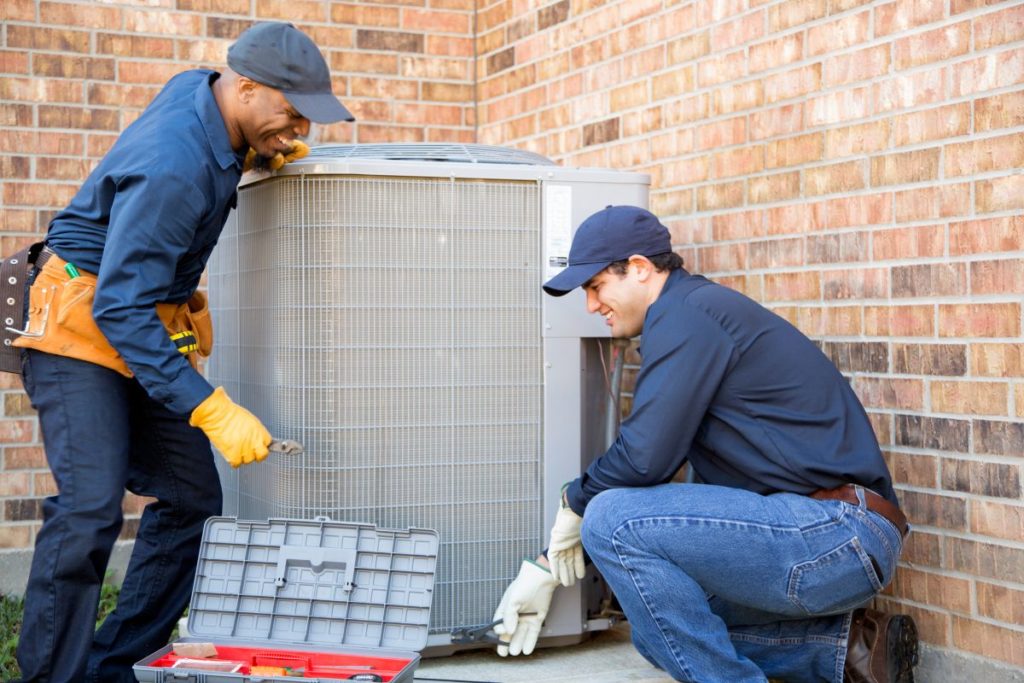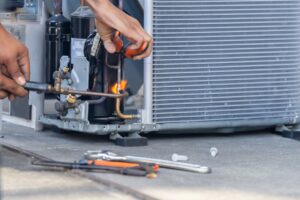Like many other professions, Air Conditioning and Refrigeration (ACR) contractors are subject to licensing standards. The Texas Department of Licensing and Regulation (TDLR) has the authority under state law to regulate ACR licenses. These licenses relate to all workers who install, maintain, and repair heating, cooling, and refrigeration systems. If you are facing a complaint against your ACR license, a vocational license defense lawyer from Bertolino, LLP, may be able to assist you.
TDLR Authority Over ACR Licenses
TDLR has broad authority under 16 Tex. Admin. Code § 60.22(a) to govern all aspects of ACR licensing, including:
- Issuing licenses
- Resolving complaints
- Conducting investigations and inspections
- Imposing agreed order sanctions and administrative penalties, and
- Administering exams
TDLR also can approve agreed orders in contested cases and issue other orders provided by law. Therefore, you will always be under the governance of the TDLR from the time you apply for a license until you no longer hold a license.
Tex. Occ. Code § 1302.002 requires ACR contractor licenses for anyone who “performs the design, installation, construction, repair, maintenance, service, or modification of equipment or a product in an environmental air conditioning system, a commercial refrigeration system, or a process cooling or heating system.” With a few minor exceptions, even assisting ACR technicians must hold an ACR license. Therefore, ensuring that you are and remain eligible for an ACR license is crucial to your ability to engage in air conditioning, heating, or refrigeration work. If you are ineligible for a license, you cannot engage in this occupation without violating the law.
An Overview of the Complaint Process
Individuals and companies can file a complaint against HVAC or refrigeration contractors through the TDLR complaint process. When the Enforcement Division of TDLR receives a consumer complaint, they make two initial determinations:
- Whether TDLR has jurisdiction over the substance of the complaint, and
- Whether the complaint alleges violation of a rule or law that governs the license holder
The Enforcement Division will request and gather more information from the complainant to make these initial determinations. If TDLR determines that it has jurisdiction and a violation may have occurred, it will refer the case to the Air Conditioning and Refrigeration Contractors Advisory Board (ACRCAB) for investigation. The license holder will receive notice of the complaint and has a chance to be interviewed and respond to the complaint. An experienced license defense attorney can help you craft a response and appear before ACRCAB to resolve the complaint as quickly as possible.
Upon completing the investigation, if formal disciplinary action is not warranted or unsupported by the evidence, TDLR may dismiss the case. However, if TDLR finds a violation has occurred and disciplinary actions are warranted, the case likely will go to an informal hearing to see if the parties can reach an agreement.
If no agreement is possible, ACRCAB will recommend formal action, and the prosecutor will file a Notice of Alleged Violation (NOAV) seeking penalties and sanctions against the person’s license. Next, the case will go to an administrative hearing before an administrative law judge (ALJ) at the State Office of Administrative Hearings (SOAH). After a hearing, the ALJ will make recommendations to the ACRCAB, who can accept, modify, or reject that decision. The license holder then can accept the final decision or seek an appeal through the court system.
Common ACR License Violations
According to the TDLR Enforcement Division, it received 2,867 complaints about ACR contractors in the fiscal year 2021, which resulted in 895 open cases. The total penalties that TDLR assessed in these cases were $376,125, or an average of $3,877.58 per case.
The most frequent violations that resulted in disciplinary action in the fiscal year 2021 were as follows:
- Allowing others to use their ACR licenses
- Using licenses not assigned to their company
- Failing to comply with an order
- Misrepresentation of services
- No license numbers on invoices
- Fraudulent statements
- Contracted outside the scope of the license
- Obtained the license by fraud
- Advertising without a license
In contrast, the most common reasons for complaints in the fiscal year 2021 were as follows:
- Criminal history
- Mechanical integrity code issue
- Contracting without a license
- Misrepresentation of service
- Advertising without a license
- Required information not on proposal or invoice
- Fraudulent statements
- No license number in ads
- No license number on invoices
- Failure to provide an invoice to a customer
Sanctions Arising from ACR License Violations
If ACRCAB ultimately finds that you have violated a rule or law and are subject to disciplinary sanctions, you can face various consequences. Generally, penalties and sanctions for ACR license violations fall into four classifications, from Class A to Class D.
Class A sanctions include paying a fine ranging from $500 to $1,000. These violations are primarily administrative and public notice violations and an advertising violation.
Class B sanctions include paying a penalty ranging from $1,000 to $3,500 and/or up to a one-year full license suspension. In addition, violations that fall under Class B records violations, some mechanical integrity violations, unlicensed activity, and improper use of a license.
Class C sanctions include the payment of fines ranging from $2,000 to $5,000, plus a one-year probated license suspension up to license revocation. Class C violations include alteration of license or registration, insurance violations, mechanical integrity violations, misrepresentation, and unlicensed activity.
Class D sanctions include payment of a penalty of up to $5,000 and/or revocation of your license. Violations that fall in the Class D category include failing to comply with a previous order of the TDLR Executive Director or ACRCAB, obtaining or attempting to obtain a license, certification, or registration by fraud or false representation, cheating on an examination or failing to pay the Department for a dishonored payment.
Count on Bertolino LLP to Defend Your Air Conditioning and Refrigeration Certificate
When a complaint threatens your ability to earn a living, you need a seasoned HVAC license defense lawyer on your side. We will defend you against these attacks on the credentials you have worked so hard to earn. Get in touch with the lawyers of Bertolino, LLP, today by calling (512) 515-9518 or visiting us online.
Call or text (512) 476-5757 or complete a Case Evaluation form






